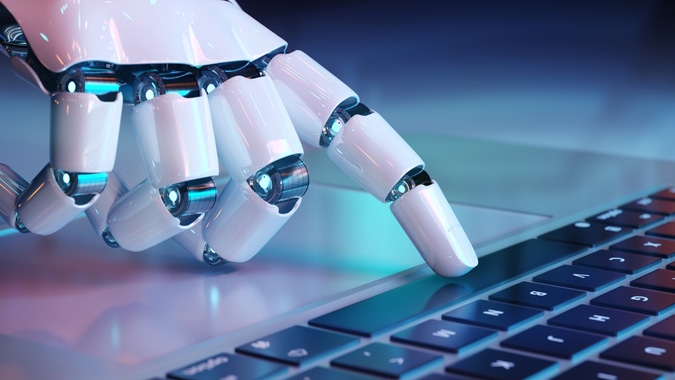Opinions expressed by Entrepreneur contributors are their own.
Recent advances in artificial intelligence have caused a surge of public and business interest in this remarkable technology. Though most of its applications are still in their infancy, professionals across a wide range of industries have begun using AI-infused assistants to accomplish various tasks. This accelerated pace of innovation and data usage has, however, led to increased uncertainty about just where machine learning and thinking is headed, and the impacts it will have on society. In terms of positive effects, I certainly see some standouts.

Shutterstock
Running high-information scenarios with less error
AI can consider multiple scenarios and make educated decisions using both previously gathered information as well as real-time data. As a result, the errors are reduced and the chance of reaching broader accuracy and greater precision is much greater. Example: The forecasting of weather and other natural disasters such as earthquakes and tsunamis.
Reducing risk
Robots applying machine learning can risk dangers that might otherwise be lethal for humans. Think of exploring space or the deepest parts of oceans, defusing a bomb or inspecting unstable structures. Example: In the still-lethal areas of the Chernobyl nuclear disaster site in Ukraine, robots are conducting radiation surveillance, removing debris from the destroyed reactor, taking samples of radiological materials and even burying radioactive materials.
Related: How AI Can Deliver Clean Water to Billions
Helping with grunt work
Conducting a repetitive task is definitionally tedious, and often time-consuming. Using AI for monotonous and routine actions can help direct focus to other components of a to-do list and free us to be increasingly creative. Example: Apple’s Siri, Google Assistant and Amazon’s Alexa, along with a newer arrival, C9 Companion, are intelligent assistants that can carry a meaningful conversation and help manage and organize daily life (such as answering emails, texting friends and other tasks).
Faster decision-making
AI can make decisions and carry out actions far faster than humans, and latest generations of machine learning can consider facts and statistics as well as learn aspects of human emotion, then weigh both into its calculations. Example: In health care, AI can help doctors and researchers diagnose cancer more accurately and efficiently, making treatment more effective.
24/7 availability
Using AI, we can make robots that can function all day, every day, without break. Plus, unlike we humans, they do not become bored or disinterested in repetitive tasks. Example: Chatbots for customer service or hotlines. Offering 24/7 customer service is essential for global companies as they have customers from all over the world who reside in different time zones. AI solutions are winnings ways of them staying connected with customers.
Related: 3 Ways Machine Learning Can Help Entrepreneurs
Engine of invention
AI is powering inventions in a variety of sectors that will help humans solve complex problems, expanding our creativity and ingenuity in the process. Examples include medical devices, drug synthesizers, weapons… even kitchen appliances. In part this is because machine learning can create unpredictable, innovative outcomes autonomously, rather than merely following instructions, and can do so without human bias.



